Continuing the 49th Session, on the morning of September 29, at the National Assembly House, the National Assembly Standing Committee gave opinions on the draft Law on Civil Servants (amended) and the draft Law on Judicial Expertise (amended).
Building a civil servant evaluation system
According to the Government 's Submission, the draft Law on Civil Servants (amended) consists of 6 chapters and 43 articles (19 articles less than the current Law).
In terms of basic content, the draft Law innovates the mechanism and method of recruiting, using and managing civil servants according to job positions; creates connectivity in the use of human resources between the public and private sectors; implements a mechanism to attract and use high-quality human resources to work in public service units; innovates the mechanism of evaluating civil servants to improve the quality and efficiency of serving the people and society.
The report on the review of the draft Law stated that the National Assembly's Committee on Law and Justice agreed to comprehensively amend the Law on Civil Servants.
The contents of the draft Law are consistent with the Party's policies and guidelines directly related to the contingent of civil servants; basically meet the requirements of innovation in law-making thinking; ensure constitutionality and compatibility with relevant international treaties to which Vietnam is a member, and at the same time basically ensure consistency with relevant laws.
However, the review agency requested the drafting agency to continue reviewing Party resolutions related to civil servants to ensure full institutionalization in this amendment; carefully review the provisions of the current Law, closely follow the amended content in the relevant draft laws submitted to the National Assembly at the 10th Session to ensure consistency and unity of the legal system.
Regarding the innovation in recruitment, use and management of civil servants according to job positions (Article 3), the examining agency basically agrees with the conversion of the method of managing civil servants according to job positions as prescribed in the draft Law to suit the current trend of public sector reform, meeting the requirements of "strongly innovating methods of recruitment, assessment, planning, training, fostering, arrangement and use of cadres, civil servants and public employees in the political system" in Conclusion No. 121-KL/TW dated January 24, 2025 of the 13th Party Central Committee, contributing to creating a legal basis for implementing salary payment according to job positions in the spirit of Resolution No. 27-NQ/TW dated May 21, 2018; ensuring consistency and unity with the method of managing cadres and civil servants prescribed in the Law on Cadres and Civil Servants.
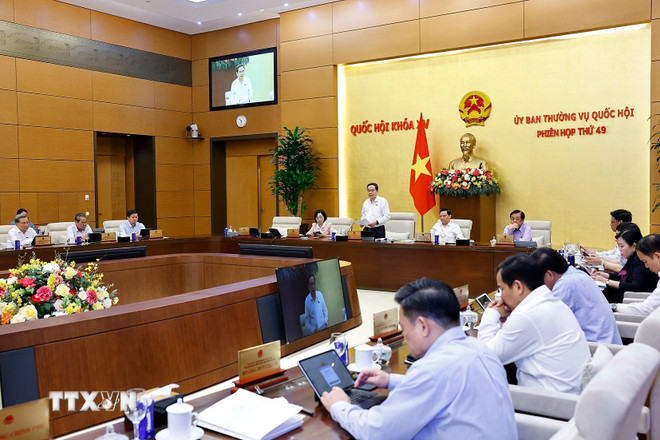
Speaking at the meeting, National Assembly Chairman Tran Thanh Man stated that the draft Law marks an important step forward in modernizing the management of public human resources in Vietnam, inheriting the spirit of the 2010 Law, amended and supplemented in 2019 to move towards a model with civil servants as the center. In the context of national digital transformation and international integration, the draft Law not only overcomes old shortcomings but also opens up a creative space for public service units.
The National Assembly Chairman noted that the draft Law needs to ensure increased transparency and prevent abuse in recruitment; it is "flexible" but it is not acceptable to have many unqualified civil servants.
Emphasizing that "cadres are the root of the work," the National Assembly Chairman said that selecting cadres must have enough virtue, talent, heart, capacity, health and enthusiasm for the job; at the same time, building a system to evaluate civil servants in the coming time. Civil servants must be evaluated to see if they complete or not complete their tasks, and cannot be recruited to stay in the system for life.
The National Assembly Chairman pointed out that building a team of civil servants must be professional, creating a flexible mechanism in recruitment and ensuring the legitimate rights of civil servants. At the same time, promoting digital transformation in civil servant management, building a transparent and modern administration.
The National Assembly Chairman suggested that the draft Law needs to ensure consistency and synchronization with related laws such as the Law on Cadres and Civil Servants; the Labor Code, the Social Insurance Law, the Public Investment Law, the Bidding Law, the Land Law, the Planning Law, etc. to avoid overlap and contradiction during implementation.
Avoid taking advantage of and influencing the results of judicial appraisal.
Commenting on the draft Law on Judicial Expertise (amended) on the morning of September 29, the National Assembly Standing Committee basically agreed with the scope of amendments to the draft Law; requested the Government to continue directing the review to ensure the requirement of innovative thinking in law-making work, implementing the Party's policy on arranging and streamlining the apparatus of the political system, ensuring that this amendment must achieve the goal of fundamentally resolving legal difficulties and inadequacies in judicial expertise activities, effectively serving litigation activities, meeting the requirements of investigation, prosecution and trial of economic and corruption cases.
Regarding local forensic injury examination (Article 15), the National Assembly Standing Committee proposed to clarify more information and make specific assessments of the advantages, limitations, positive impacts, precautions and negative impacts when adding tasks to the Criminal Techniques Department under the Provincial and Municipal Police.
Regarding the issue of expanding the scope and field of socialized judicial appraisal (Article 18), opinions agree with the Government's proposal that the scope of socialization be expanded; however, in the immediate future, it should be expanded to a number of fields that social organizations and individuals have a need for, but it must ensure strict regulations, be implemented step by step carefully, and be associated with effective and efficient management work, avoiding abuse and taking advantage to violate the law, affecting appraisal results.
Regarding the cost of judicial appraisal (Article 38), opinions agreed with the draft Law and suggested stricter regulations and a monitoring mechanism to avoid abuse of appraisal solicitation; review and propose amendments to relevant laws to ensure consistency and uniformity of the legal system./.
Source: https://www.vietnamplus.vn/doi-moi-viec-tuyen-dung-su-dung-quan-ly-vien-chuc-post1064709.vnp



![[Photo] General Secretary To Lam receives US Ambassador to Vietnam Marc Knapper](https://vphoto.vietnam.vn/thumb/1200x675/vietnam/resource/IMAGE/2025/9/29/c8fd0761aa184da7814aee57d87c49b3)
![[Photo] National Assembly Chairman Tran Thanh Man chairs the 8th Conference of full-time National Assembly deputies](https://vphoto.vietnam.vn/thumb/1200x675/vietnam/resource/IMAGE/2025/9/29/2c21459bc38d44ffaacd679ab9a0477c)
![[Photo] General Secretary To Lam chairs the meeting of the Central Steering Committee on preventing and combating corruption, waste and negativity](https://vphoto.vietnam.vn/thumb/1200x675/vietnam/resource/IMAGE/2025/9/29/fb2a8712315d4213a16322588c57b975)
![[Photo] General Secretary To Lam attends the ceremony to celebrate the 80th anniversary of the post and telecommunications sector and the 66th anniversary of the science and technology sector.](https://vphoto.vietnam.vn/thumb/1200x675/vietnam/resource/IMAGE/2025/9/29/8e86b39b8fe44121a2b14a031f4cef46)
![[Photo] Many streets in Hanoi were flooded due to the effects of storm Bualoi](https://vphoto.vietnam.vn/thumb/1200x675/vietnam/resource/IMAGE/2025/9/29/18b658aa0fa2495c927ade4bbe0096df)
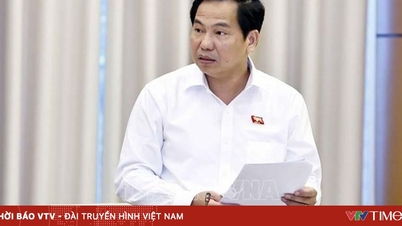

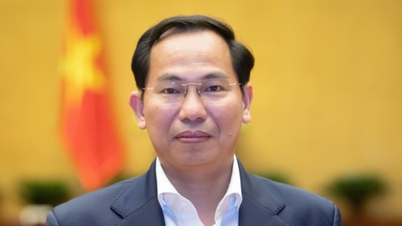

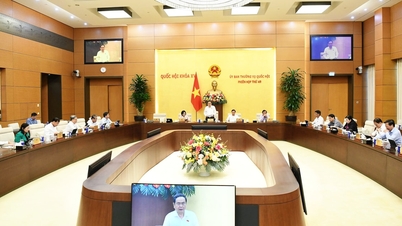

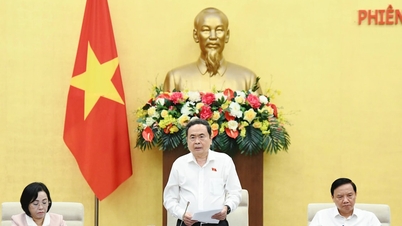
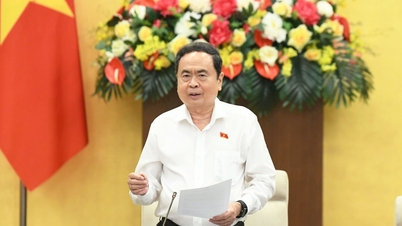



![[Video] General Secretary To Lam: Science and Technology sector continues to pioneer in helping the country make breakthroughs](https://vphoto.vietnam.vn/thumb/402x226/vietnam/resource/IMAGE/2025/9/29/4ec5dc37921040cb8f5dcc1514ada764)

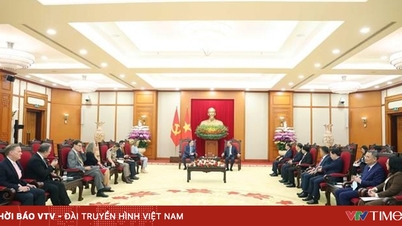
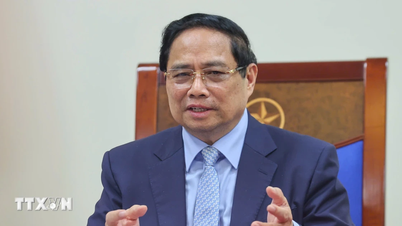





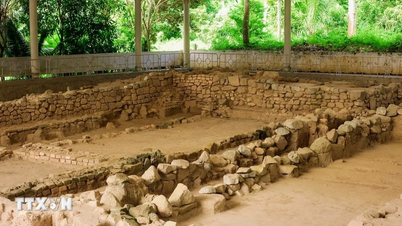

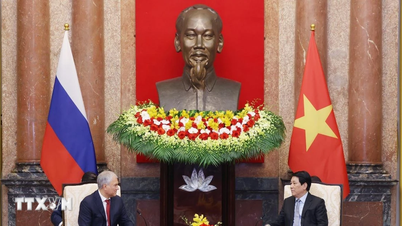

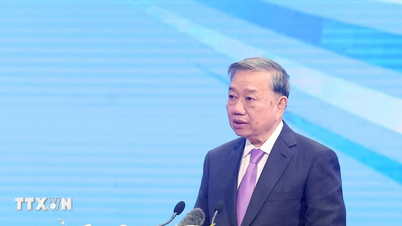














































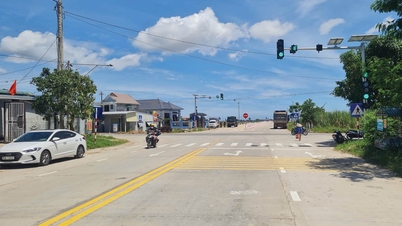







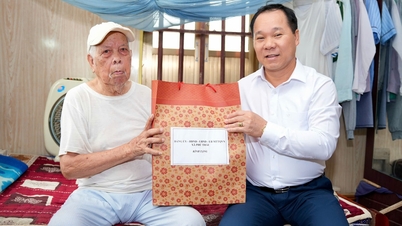














Comment (0)